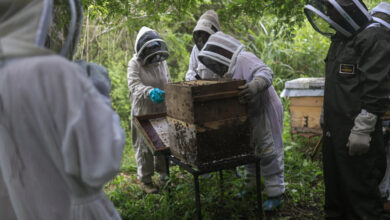The Freedom To Accept Feelings of Pain and Sadness
The pandemic has brought with it a significant number of losses that go further than death.

The Woman Post | Carolina Rodríguez Monclou
Listen to this article
COVID-19 have not only interrupted but drastically changed people's life. The pandemic's restrictions include not going out to crowded places like concerts, cinemas, theatres, theme parks, beaches, pubs, nightclubs, and popular tourist destinations. Most places where many people used to relax and share with friends and family are now closed. As a consequence, many have experienced poor mental health due to confinement.
The loneliness that COVID-19 brought to many lives makes people feel guilty of their losses that are not necessarily related to the 2.94 million deaths by coronavirus reported worldwide.
If you lose the chance to travel, to meet with your significant other, to hang out with family, to hug your grandparents, your loss is as valid as others' pain. The lack of those moments hurt for a reason.
Dr. Kenneth J. Doka is a Senior Consultant to the Hospice Foundation of America. In 2006, Dr. Doka was grandfathered in as a Mental Health Counselor under NY State's first licensure of counselors. He is also currently a Professor of Gerontology at The College of New Rochelle in the US.
Disenfranchised Grief
By "disenfranchised grief," Dr. Doka refers to the grief that others do not always acknowledge because an individual's type of loss isn't recognized.
In an interview with Open to Hope, he defines this phenomenon as "the losses that one experiences that are not openly acknowledged, socially supported, or publicly mourned."
In some cases, it may be a relationship that's not recognized. There is a specific situation where the death carries a sense of shame or stigma.
Also read: WHY ARE WE FEELING SO TIRED RIGHT NOW?
The expert recommends validating your grief and recognizing that your loss is significant for you to heal this wound. You can also find a way to acknowledge your loss, whether it's a small private ritual or a reunion where you invite other people.
Dr. Doka warns that if you're struggling with your loss, counseling could be helpful because you may be able to find someone who indeed can allow you to acknowledge your loss, talk about it, and look at how you're dealing with it.
The expert agrees that there shouldn't be hierarchies that determine the level of pain of people. It's okay to cry and feel sad for the people, circumstances, or things you miss. Many athletes that couldn't compete at championships felt guilty of expressing their sadness because "there's someone out there suffering more."
Recognizing the legitimacy of our pain allows us to heal and move on. Once it is recognized that the loss is actual, steps to keep going on can be taken. From asking for support to helping others can fill you with empathy and understanding.
Minor losses are also valid: not spending time with loved ones, canceling plans, or losing important events. In the hierarchy of pandemic suffering, these losses may seem small, but all of them should be recognized. It's okay if you cry because you couldn't attend your graduation physically, it's okay if you cry because your travel to another country was postponed, it's okay if you cry because you miss that person that is far away. Your pain is yours and is valuable. Don't compare what makes you sad with the pain of others. As Dr. Doka emphasizes, we need to take away this mentality.




